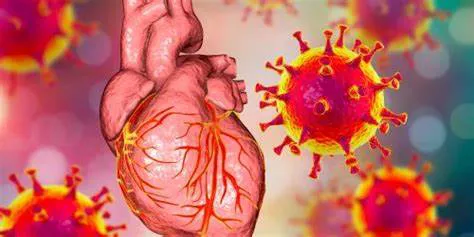Myocarditis is a condition that causes inflammation of the heart muscle, leading to various symptoms that can range from mild to severe. One common question that arises among individuals diagnosed with myocarditis or those concerned about the condition is whether myocarditis symptoms come and go. In this article, we will delve into the nature of myocarditis symptoms, how they manifest, and whether they tend to fluctuate over time.
Understanding Myocarditis
Before delving into the variability of symptoms, it’s crucial to understand what myocarditis is and how it affects the body.
Myocarditis is characterized by inflammation of the myocardium, which is the middle layer of the heart wall responsible for the heart’s pumping action. This inflammation can result from viral infections, bacterial infections, autoimmune diseases, or exposure to certain toxins.
See Also: Can You Work Out with Myocarditis
Symptoms of Myocarditis
The symptoms of myocarditis can vary widely depending on the severity of the inflammation and the individual’s overall health. Common symptoms include:
Chest Pain: This is a hallmark symptom of myocarditis and is often described as a sharp or dull pain in the chest, similar to that of a heart attack.
Shortness of Breath: As the heart’s ability to pump effectively is compromised, individuals may experience difficulty breathing, especially during physical activity.
Fatigue: Myocarditis can cause extreme tiredness and fatigue, even with minimal exertion.
Palpitations: Some individuals may experience irregular heartbeats or palpitations, which can feel like the heart is racing or fluttering.
Swelling: Edema, or swelling, can occur in the legs, ankles, and feet due to fluid retention caused by impaired heart function.
Fever: In cases where myocarditis is caused by an infection, individuals may also experience a fever and flu-like symptoms.
see also: What Causes Acute Myocarditis
Do Myocarditis Symptoms Come And Go?
The nature of myocarditis symptoms can vary from person to person. In some cases, symptoms may come on suddenly and persist consistently, while in others, symptoms may fluctuate or come and go over time. Several factors can contribute to this variability:
The severity and progression of myocarditis can influence how symptoms manifest. In acute cases, symptoms may be more intense and persistent, while in chronic cases, symptoms may wax and wane.
Treatment: The type and effectiveness of treatment can also impact symptom variability. Individuals receiving appropriate medical care and management may experience fewer and milder symptoms compared to those without treatment.
Underlying Health Conditions: Individuals with pre-existing heart conditions or other health issues may have a different experience with myocarditis symptoms. These conditions can interact with myocarditis, leading to varying symptom patterns.
Recovery Phase: During the recovery phase of myocarditis, symptoms may gradually improve, leading to periods of symptom relief interspersed with occasional flare-ups.
Managing Myocarditis Symptoms
Regardless of whether symptoms come and go or persist consistently, managing myocarditis requires comprehensive medical care and lifestyle adjustments. Treatment may include:
Medications: Such as anti-inflammatory drugs, immunosuppressants, and medications to manage heart rhythm and function.
Lifestyle Changes: Including a heart-healthy diet, regular exercise (as recommended by a healthcare provider), avoiding tobacco and excessive alcohol, and managing stress.
Monitoring: Regular follow-ups with a healthcare provider to monitor heart function, symptoms, and overall health.
Can Heart Muscle Repair Itself After myocarditis?
The heart muscle can repair itself to some extent after myocarditis, but the degree of recovery depends on several factors, including the severity of the myocarditis, the extent of damage to the heart muscle, and individual health factors.
In mild cases of myocarditis, where there is minimal damage to the heart muscle, the heart can often recover fully with appropriate treatment and rest. This may include medications to reduce inflammation, manage symptoms such as chest pain or heart rhythm abnormalities, and support overall heart function.
However, in more severe cases where there is significant damage to the heart muscle, the ability of the heart to repair itself may be limited. This can lead to long-term effects such as reduced heart function (heart failure) or arrhythmias (irregular heartbeats).
In some instances, additional treatments such as cardiac rehabilitation, lifestyle modifications (such as a heart-healthy diet and regular exercise), and ongoing medical management may be necessary to support heart health and function after myocarditis.
It’s crucial for individuals who have had myocarditis to work closely with their healthcare providers for ongoing monitoring and management to optimize heart recovery and overall health.
Conclusion
In conclusion, myocarditis symptoms can vary in their presentation, with some individuals experiencing consistent symptoms and others experiencing fluctuations over time. Factors such as disease progression, treatment, underlying health conditions, and the recovery phase can all influence symptom variability. Effective management of myocarditis requires a comprehensive approach involving medical treatment, lifestyle modifications, and regular monitoring by healthcare professionals. If you suspect you may have myocarditis or are experiencing concerning symptoms, it’s crucial to seek medical attention promptly for an accurate diagnosis and appropriate care.


